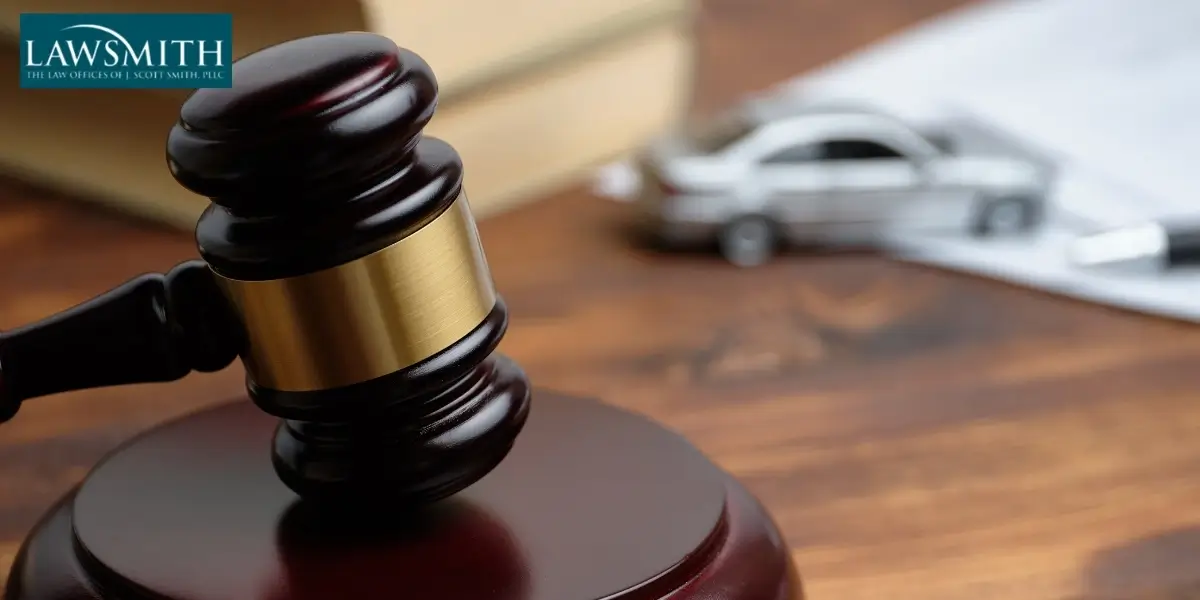What Is Civil Revocation in North Carolina?

LAWSMITH, The Law Offices of J. Scott Smith, PLLC, answers the question, “What is a civil revocation in North Carolina?” In North Carolina, being charged with certain offenses, especially those related to driving while impaired (DWI), can result in a civil revocation of your driver’s license. Civil revocation is a legal process separate from criminal penalties that temporarily suspends your driving privileges before a conviction has occurred.

Understanding Civil Revocation in North Carolina
Understanding the nuances of civil revocation is essential, as it can have an immediate and significant impact on your daily life. Civil revocation in North Carolina is an administrative action taken by the DMV that suspends or revokes an individual’s driver’s license based on specific offenses or violations, separate from criminal penalties.
Civil revocation often occurs before any criminal conviction or trial, particularly in cases like DWI, where immediate action is taken based on the evidence collected during the arrest. North Carolina has an implied consent law that requires drivers to submit to chemical testing if suspected of DWI. Being arrested for DWI in North Carolina sometimes results in automatic civil revocation.
If you are caught driving while your license is already revoked for other reasons, this can lead to additional revocation . The typical length of the civil revocation can vary with the offense. During the revocation period, in some cases, you may apply for a limited driving privilege, which allows you to drive for specific purposes such as work, school, or medical appointments.
What to Do After a Civil Revocation
After a civil revocation of your driver’s license in North Carolina, there are several important steps you should take to address the revocation and work towards reinstating your driving privileges.
- Understand the reason for revocation. It is helpful to determine the specific reason for the civil revocation. This could include DWI offenses, refusal to submit to chemical testing, or other serious driving violations.
- Review the revocation details. Ensure that you review the documents you receive regarding the revocation. This includes the duration of the revocation, any specific conditions you need to meet, and deadlines for compliance. Be aware of your right to request a hearing or contest the revocation if applicable. This is particularly important if you believe the revocation was issued in error or if there are mitigating circumstances.
- Fulfill legal and administrative requirements. If the revocation is related to a criminal offense, ensure that you have completed all court-imposed penalties such as fines, community service, or probation. Resolve any other issues that may have led to the revocation, such as unpaid child support or lack of insurance.
- Apply for a limited driving privilege. If you need to drive during the revocation period for essential purposes (e.g., work, school, medical appointments), you may be eligible for a limited driving privilege.
- Complete required programs or courses. If required, complete any alcohol education or treatment programs mandated by the court or DMV. You might need to take a driver improvement course if the revocation warrants it.
- Request a hearing. If you believe the revocation was incorrect or if you have new evidence, you can request a hearing to challenge the revocation. This hearing allows you and your legal representation to present your case and argue for the reinstatement of your license.
- Consult with an attorney. Consider consulting with a lawyer who works with driving offense cases. They can help you navigate the process, represent you at hearings, and provide guidance on achieving reinstatement.
Dealing with a civil revocation involves understanding the cause, fulfilling legal and administrative requirements, and taking the necessary steps to work toward reinstating your driving privileges. By addressing the revocation promptly and thoroughly, you can mitigate its impact and move towards regaining your ability to drive legally.
FAQs
What Does Civil Revocation Mean in North Carolina?
What civil revocation means in North Carolina is the suspension or revocation of a person’s driver’s license based on administrative actions rather than criminal convictions. This typically occurs in situations involving offenses like driving while impaired (DWI) or certain other violations.
Civil revocation is an administrative measure imposed by the North Carolina DMV rather than through the court system. It is designed to remove a driver’s license based on certain actions or offenses, even before any criminal charges or convictions occur.
How Do I Get My License Back After Revocation in North Carolina?
How you can get your license back after revocation in North Carolina can vary with the reasons for the revocation and the specifics of your situation. It is first important to understand why your license was revoked. Common reasons include DWI offenses, accumulation of driving points, failure to pay child support, etc. Each reason may have different reinstatement requirements.
Do You Lose Your License Immediately After a DWI in North Carolina?
In North Carolina, whether you lose your driver’s license immediately after a DWI offense depends on several factors, including the specifics of the DWI incident and the results of any breathalyzer or blood tests. You only lose your driver’s license immediately after a DWI arrest due to administrative revocation, especially if your BAC is above the legal limit or if you refuse to submit to testing.
Speak With a Lawyer Today About Civil Revocation
Navigating the complexities of civil revocation in North Carolina requires a clear understanding of the process and its implications. This temporary suspension of your driving privileges, separate from criminal penalties, can have a significant impact on your daily life and future driving record. If you face civil revocation, it’s crucial to seek legal guidance to explore your options and understand the steps you can take to mitigate its effects.
Reach out to LAWSMITH, The Law Offices of J. Scott Smith, PLLC, and set up a consultation to speak with a lawyer today about civil revocation in North Carolina.

